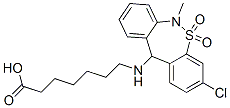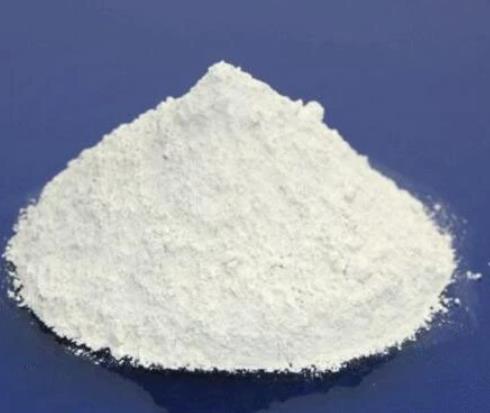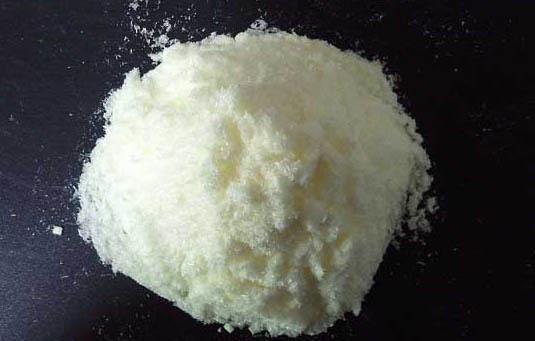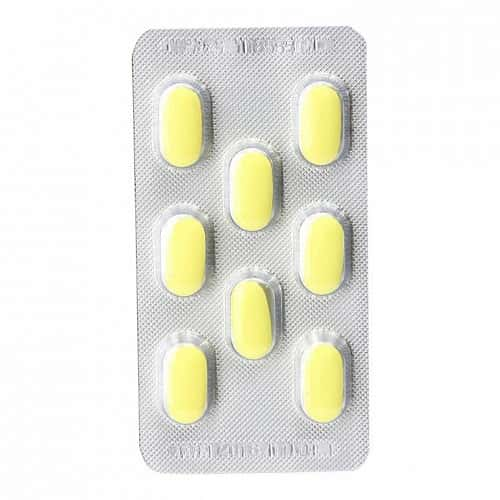The adverse effects of Tianeptine
Tianeptine is an antidepressant agent with a novel neurochemical profile. It increases serotonin (5-hydroxytryptamine; 5-HT) uptake in the brain (in contrast with most antidepressant agents) and reduces stress-induced atrophy of neuronal dendrites. Like the selective serotonin reuptake inhibitors (SSRIs) and in contrast with most tricyclic antidepressant agents, tianeptine does not appear to be associated with adverse cognitive, psychomotor, sleep, cardiovascular or bodyweight effects and has a low propensity for abuse.
Tianeptine has a comparatively favourable pharmacokinetic profile. It is not subject to first-pass hepatic metabolism, has high bioavailability and limited distribution, and is rapidly eliminated. While this offers advantages for tianeptine over the tricyclic antidepressant agents in terms of dose titration, treatment changes and potential drug interactions, its rapid elimination makes adherence to dosage schedules more important. Tianeptine differs from most antidepressants in that it is not primarily metabolised by the hepatic cytochrome P450 system, indicating less likelihood of drug-drug interactions; this is of particular interest for elderly patients.
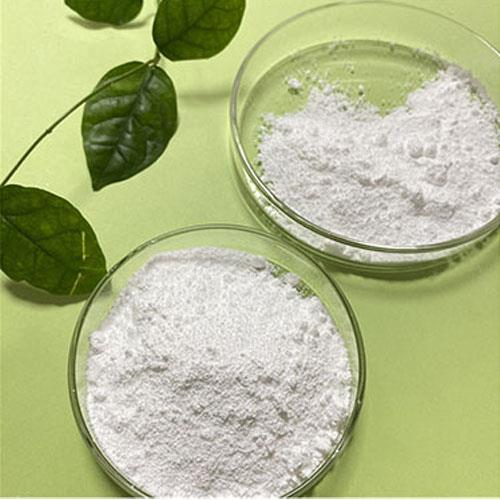
Picture 1 Tianeptine powders
The adverse effects
Tianeptine appears to be as effective as fluoxetine, sertraline, amitriptyline, clomipramine and mianserin and more effective than maprotiline in improving associated anxiety in patients with depressive disorders. Depression and anxiety symptoms in alcohol dependant patients also respond well to tianeptine.
The adverse effects associated with tianeptine are similar in many respects to those of the SSRIs and minimal in comparison with the tricyclic antidepressants. The most common adverse effects are nausea, constipation, abdominal pain, headache, dizziness and changes in dreaming. Anticholinergic effects occur less often with tianeptine than with tricyclic agents. Hepatoxicity is rare. The dosage should be decreased in elderly patients and those with severe renal failure, but adjustment is not necessary in patients with alcoholism or hepatic impairment, or those undergoing haemodialysis.
The antidepressant efficacy and favourable tolerability and pharmacokinetic profiles of tianeptine in patients with depression, including those with associated anxiety, have been proven; the data indicate that it may have additional potential in specific subgroups of depressed patients such as the elderly and those with chronic alcoholism.
Pharmacodynamic profile
Tianeptine is an antidepressant drug with structural similarities to the tricyclic antidepressant agents but a novel neurochemical profile. The main difference between this and other antidepressant agents is its action on serotonin (5-hydroxytryptamine; 5-HT): tianeptine increases serotonin uptake in the brain and platelets. The behavioural (in animal models) and physical (atrophy of neuronal dendrites) effects of stress on the hypothalamic-pituitary-adrenal axis are reduced by tianeptine, and levels of noradrenaline (norepinephrine) and dopamine are indirectly increased in several regions of the brain. The main metabolite (MC5; pentanoic acid) has some minor antidepressant activity.
Clinical studies indicate that, unlike tricyclic antidepressant agents, tianeptine is not associated with adverse effects on driving skills or cognitive function (such as sedation or impaired memory) and may have slight activating properties, particularly in aspects of attention. Similarly, there appear to be few effects on sleep in healthy volunteers or patients with concurrent depression and alcoholism after withdrawal of alcohol.
Like the selective serotonin reuptake inhibitors (SSRIs) and in contrast with the tricyclic antidepressants, tianeptine has a favourable cardiovascular profile in healthy volunteers and patients with depression, with and without concurrent alcoholism.
Metabolism
Tianeptine undergoes extensive extrarenal metabolism and has a short elimination half-life (t1/2β; 2.5 hours in healthy volunteers). The major metabolic pathway of tianeptine is a 2-step β-oxidation process of the aliphatic chain, leading to the formation of 2 main metabolites MC5 and MC3 (propionic acid). MC3 is the main metabolite of tianeptine in urine and MC5 is the main metabolite in plasma. Tianeptine does not undergo cytochrome P450—dependent biotransformation to any significant extent, thus reducing the risk of drug interactions.
Although bioavailability of tianeptine remained high (85%) in elderly individuals, clearance was lower than that reported in younger individuals. The pharmacokinetic profile of tianeptine is not altered in patients with alcoholic cirrhosis and depression.
Therapeutic efficacy
The clinical antidepressant efficacy of tianeptine 25 to 50 mg/day has been proven against placebo in patients aged 18 to 60 years with major depression (single episode or recurrent) or bipolar disorder (depressed) in 2 double-blind trials. Initial improvements were seen after 7 days, and improvement continued throughout the 6 weeks of study. Improvements from baseline on the Montgomery-Åsberg Depression Rating Scale (MÅDRS) were 44 and 54% with tianeptine and 28 and 38% in placebo recipients (p < 0.05 and p < 0.01, respectively).
Tianeptine 25 to 37.5 mg/day for 1.5 to 3 months had equivalent antidepressant efficacy to fluoxetine 20 mg/day in patients with major depression (single episode or recurrent), bipolar disorder (depressed) or dysthymic disorder in several studies. However, although equivalence was noted in several parameters in elderly patients receiving tianeptine or fluoxetine in one study, reductions from baseline in the MÅDRS scores were statistically significantly greater in those receiving fluoxetine (62 vs 51% in fluoxetine and tianeptine recipients, respectively, compared with 50 vs 51%, respectively, in a study in patients aged 18 to 65 years which used this assessment tool). The antidepressant efficacy of tianeptine 37.5 mg/day (reduction in MÅDRS score of 56%) was equivalent to that of sertraline 50 mg/day (reduction of 54%) after 1.5 months in patients with major depression or bipolar disorder. A study published only in abstract form indicates that tianeptine 37.5 mg/day has similar efficacy to paroxetine 20 mg/day for 3 months (reductions in MÅDRS scores of 62 and 61%, respectively).
The anxiolytic efficacy of tianeptine
The anxiolytic efficacy of tianeptine was assessed in several comparative trials of patients with concurrent depression and anxiety. Patients with chronic alcoholism often develop depression, especially on withdrawal of alcohol. Assessments of antidepressant and anxiolytic efficacy for tianeptine 37.5 mg/day were equivalent to those for amitriptyline 75 mg/day over 1 to 2 months in this patient population. Improvements in quality-of-life scales with depressed tianeptine recipients were similar to those in patients receiving mianserin or fluoxetine.
Tolerability
The adverse effect profile of tianeptine appears to be similar in many respects to that of the SSRIs, in that cognitive, cardiovascular and bodyweight effects are minimal in comparison with the classical tricyclic antidepressant agents. In fact, in comparisons with placebo, the only symptom appearing significantly more often with tianeptine was headache. In clinical trials, the most common adverse effects seen in patients with depressive disorders receiving tianeptine were gastrointestinal (nausea, constipation, abdominal pain) or CNS (headache, dizziness, change in dreaming) disturbances, which decreased in frequency with continued treatment.
Effects such as dry mouth, hot flushes, somnolence, vertigo, gastrointestinal disturbances, increased bodyweight, increased heart rate and tremor occurred significantly more often in patients receiving tri- or tetracyclic antidepressant agents than in those receiving tianeptine. In studies comparing tianeptine with fluoxetine, paroxetine or sertraline, in contrast, the incidence of most adverse effects was similar; nausea, tremor and palpitations tended to occur more often in fluoxetine recipients, and the incidence of dry mouth tended to be higher in tianeptine recipients. Tianeptine has only rarely been associated with hepatoxicity.
The favourable tolerability profile of tianeptine has been confirmed in long term trials, and in elderly patients (including those with cardiovascular pathology before treatment initiation) and patients with alcoholism. The low incidence of anticholinergic and neurological effects associated with tianeptine is of particular importance in these subgroups, who have increased sensitivity to the adverse effects of psychotropic drugs. Tianeptine has a wide therapeutic margin; overdosage has been associated with only minor transient adverse effects.
Dosage and administration
The recommended dosage of tianeptine in patients with depression is 37.5 mg/day orally in 3 divided doses, with meals. The dosage should be reduced in elderly patients and patients with severe renal failure, but dosage reduction is not required in patients with chronic alcoholism or hepatic impairment or those undergoing haemodialysis.
The dosage of tianeptine should be reduced over 1 to 2 weeks when discontinuing treatment, although there is little evidence of psychological or physical dependence on the drug. As with other antidepressants, tianeptine is contraindicated in patients taking monoamine oxidase inhibitors.
Reference
1 Wagstaff, A.J., Ormrod, D. & Spencer, C.M. Tianeptine. Mol Diag Ther 15, 231–259 (2001).
Related articles And Qustion
See also
Lastest Price from Tianeptine manufacturers
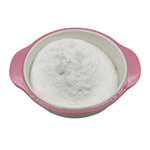
US $1.50-0.60/g2025-10-31
- CAS:
- 66981-73-5
- Min. Order:
- 10g
- Purity:
- 99%
- Supply Ability:
- 600tons

US $1.00/kg2025-07-02
- CAS:
- 66981-73-5
- Min. Order:
- 1kg
- Purity:
- 99%
- Supply Ability:
- 10000
